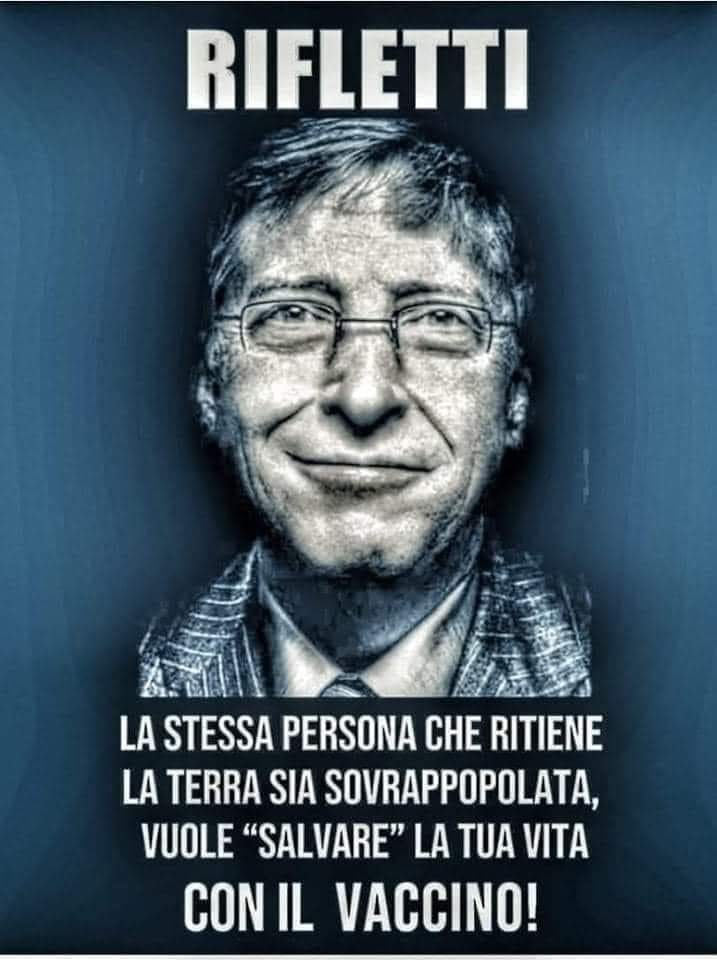Roberto De Mattei recently published an article on The Secret Forces That Operate in History [1], wherein he agrees with G. Malgieri in maintaining that “those who contest the only protective system we have [i.e., wearing masks and practicing social distancing] […] are frankly ridiculous”. He goes on to say that the government officials (“the ones who decide the “states of exception” “) must be obeyed lest we ignite “permanent chaos”. In De Mattei’s view, “the emergency situation humanity finds itself in [is] certainly willed by God”.
There are many mistakes in De Mattei’s account.
First, he admits that conspiracies do exist,[2] but we should use reason and not imagination in finding out what counts as a genuine conspiracy. Nothing would be wrong with this common sense assumption, if it weren’t for the implicit gaslighting of whomever happens to disagree with De Mattei on the analysis of the current situation and for the sloppy references to Saint Thomas. De Mattei maintains that whoever has doubts that we are facing an health-care crisis is led by restless imagination and not by reason. Such a disorder, De Mattei implies, is the result of not living in the state of grace. Aquinas certainly maintained that the intellect and the imagination are different powers of the soul, but he never said that the imagination can make conceptual connections between events, as De Mattei is implying, nor did Saint Thomas refer to imagination as a “form of thought which doesn’t follow fixed rules nor logical connections”. The imagination is not a form of thought but a power that we share with (some) non-rational animals. Aquinas would have never said that “it isn’t possible to maintain logic without the help of grace” – whatever that means. Rather, Saint Thomas wrote that after the fall “in so far as the reason is deprived of its order to the true, there is the wound of ignorance” (I-II, q. 85, a.3c): human beings are no longer oriented towards truth, as it would have been before the fall, but do not cease to be rational, i.e. logical: “sin cannot entirely take away from man the fact that he is a rational being” (I-II, q. 85, a.2c). De Mattei’s gaslighting is subtle in that it implies that whoever does not go along with mainstream depictions of events is not only crazy (i.e., unable to reason and carried away by restless imagination), but is also in the state of mortal sin, because it is only grace that make us reason. One can only hope that De Mattei’s academic publications are not as lousy as this article.
Next, De Mattei criticizes the Italian philosopher Diego Fusaro, who happens to be among those who criticize the current handling of the coronavirus situation. De Mattei stresses that Fusaro is a “Neo-communist”. Fusaro’s first books were certainly inspired by K. Marx, but people can change over time. But even if Fusaro were still a Marxist to this day, it is worth noting that De Mattei’s tactic seems to consist in attributing an opinion to an untrusted source in order to disqualify the opinion itself. Saint Thomas, on the contrary, would have said that “every truth, no matter by whom it is spoken, comes from the Holy Spirit” (Super ev. S. Joannis lectura, c. 1, l. 3). Even if Fusaro were to be a Marxist (I don’t know whether this is still the case), if he were to say something true about the current world events (and I again don’t know if this is the case), Saint Thomas would say that Fusaro is right. De Mattei would say that Fusaro must be wrong because in the past he wrote bad books.
Finally, De Mattei argues that the epidemic is willed by God and we must conform to government dictates. He quotes Saint Alphonsus as saying that whatever happens to us is willed by God. The quotation, however, is out of context. Saint Alphonsus makes clear that God does not want anybody’s sin, even though He wants the humiliations that other people’s sins can cause on us because He wants us to do penance. By cherry-picking his quotations, De Mattei wrongly implies that God may want lockdowns, mask-wearing and other impositions that are crippling in the West.
De Mattei seems to believe that we are dealing with an epidemic. It might be “pseudo-logic” to look at the actual numbers, but according to the figures released by the Italian Istituto superiore di sanità, the median age at death for people with a positive Sars-Cov2 test is 82 years [3], whereas life expectancy for the overall population was 82.98 years in 2018 – the last year the figures were released. [4]
Even if there were an actual epidemic that were shortening life by about one year, and lockdowns and masks were effective in fighting it, one might wonder whether a 10% GDP drop [5] and the obligation to receive Holy Communion in the hand are a reasonable price to pay to live roughly 12 more months.
But it could also be, as De Mattei implies, that only people who are no longer able to reason because they live in mortal sin would ask themselves this question.
*Michael Linden is a nom de guerre
[1] https://rorate-caeli.blogspot.
[2] In his book Alla sinistra di Lutero (Chieti, 2017), De Mattei implies that the ideological background of freemasonry is Protestantism. The evidence presented by De Mattei in favor of this claim is certainly much more limited than the evidence showing that there is no statistically significant global epidemy at this moment.
[3] https://www.epicentro.iss.it/
English report: https://www.epicentro.iss.it/
[4] The last available figures are from 2018: http://dati.istat.it/Index.
[5] https://ec.europa.eu/info/

“Consider: the same person who holds that the earth is overpopulated, wants to ‘save’ your life with a vaccine.”
